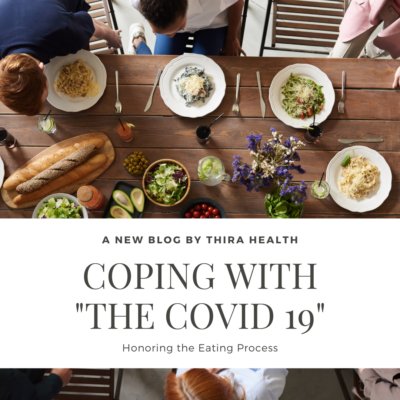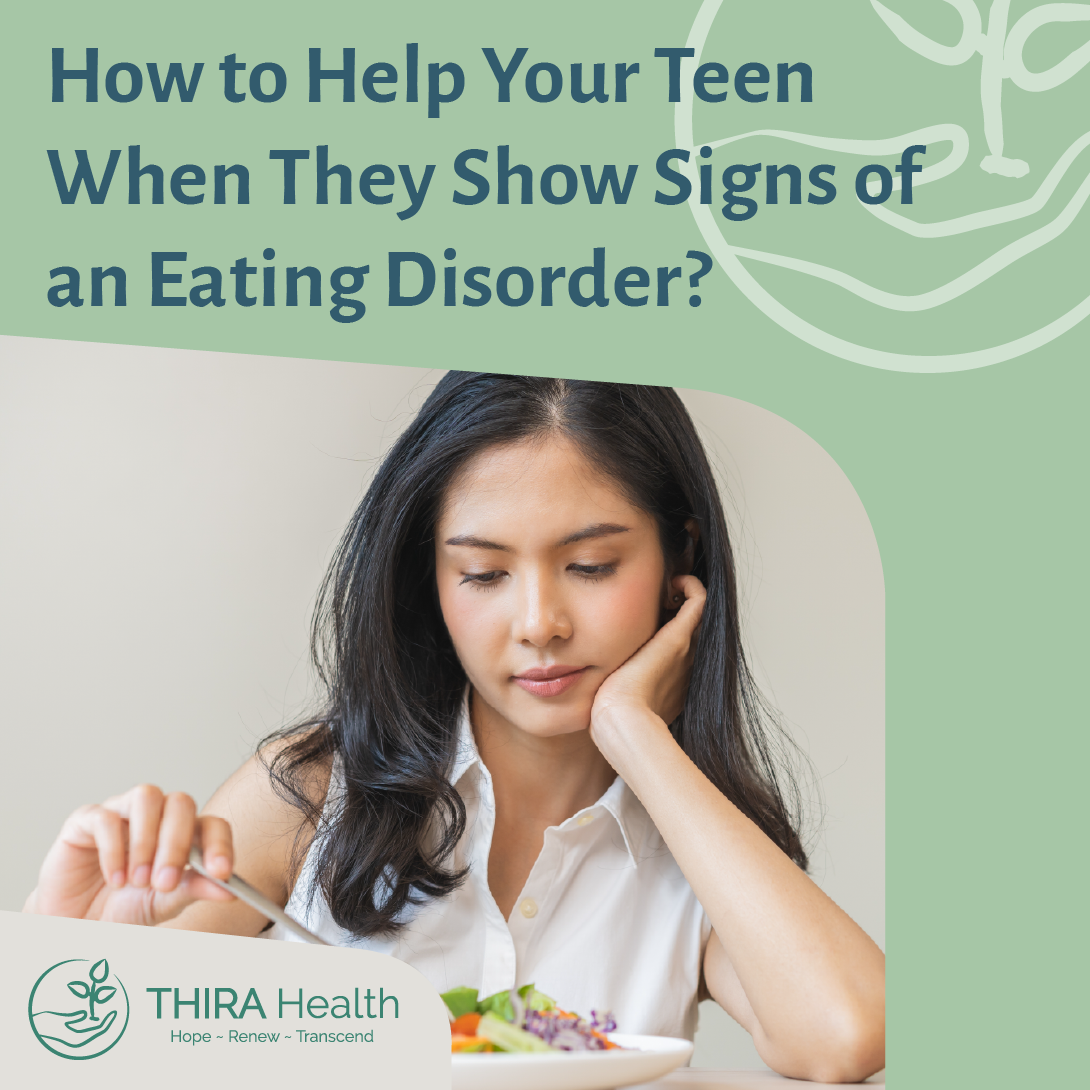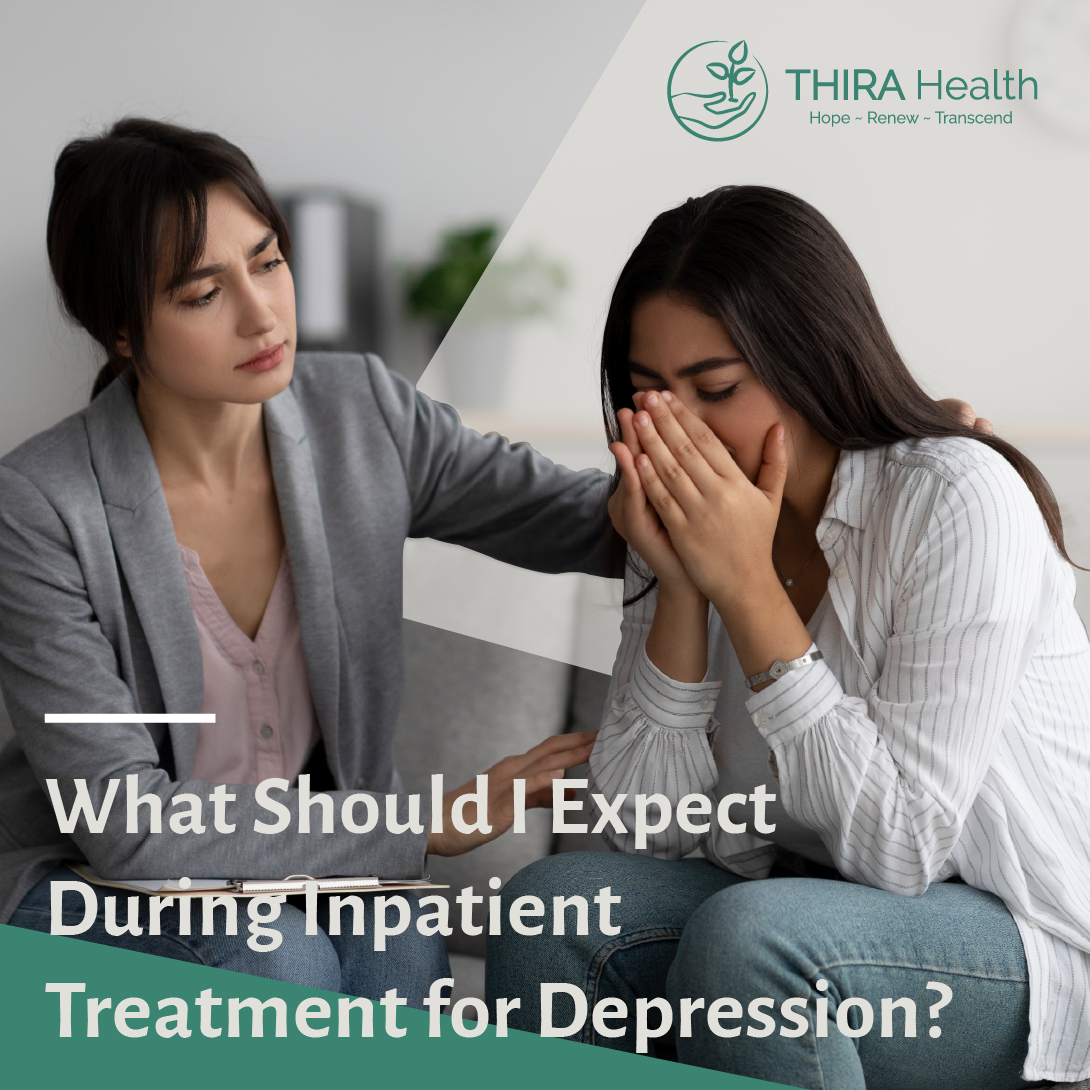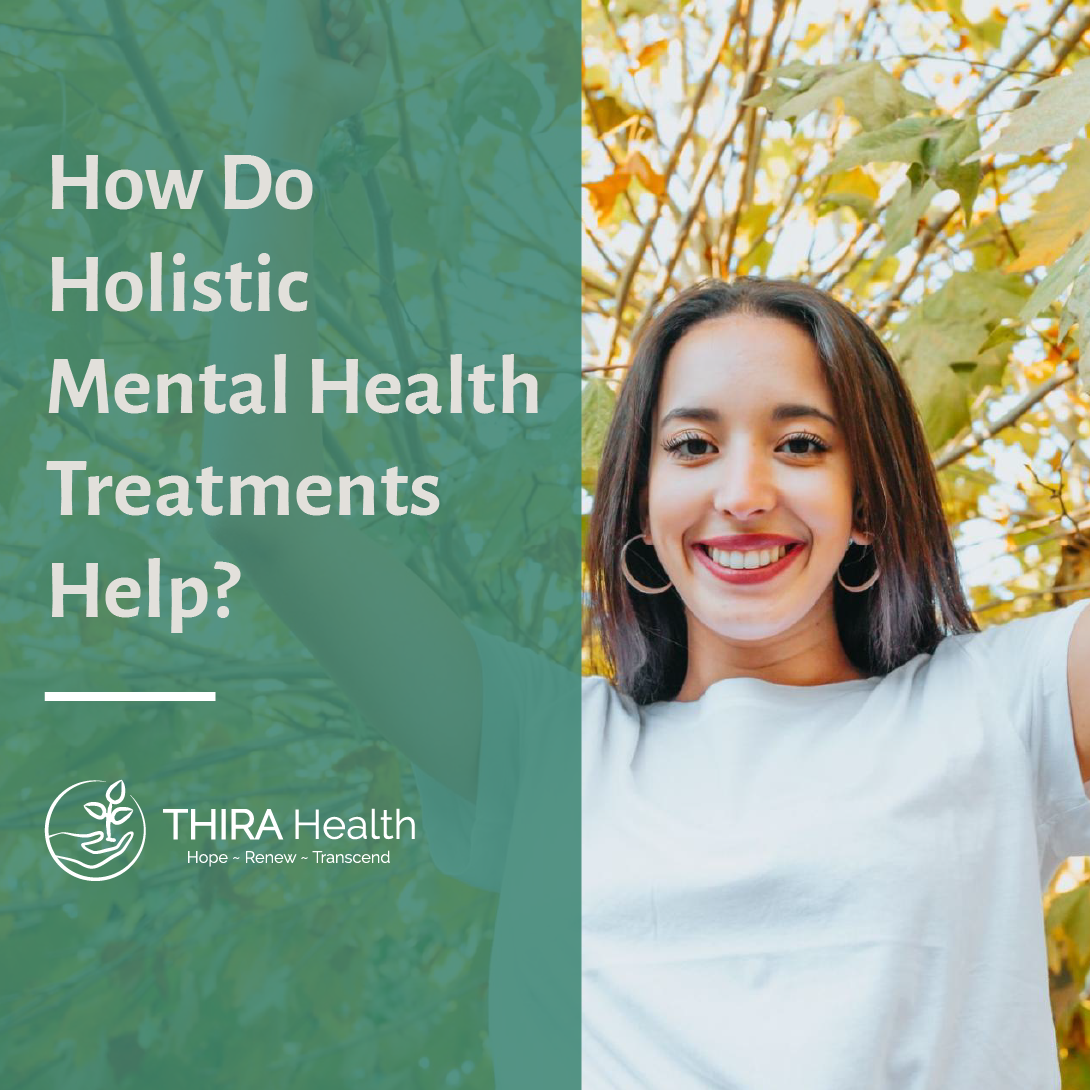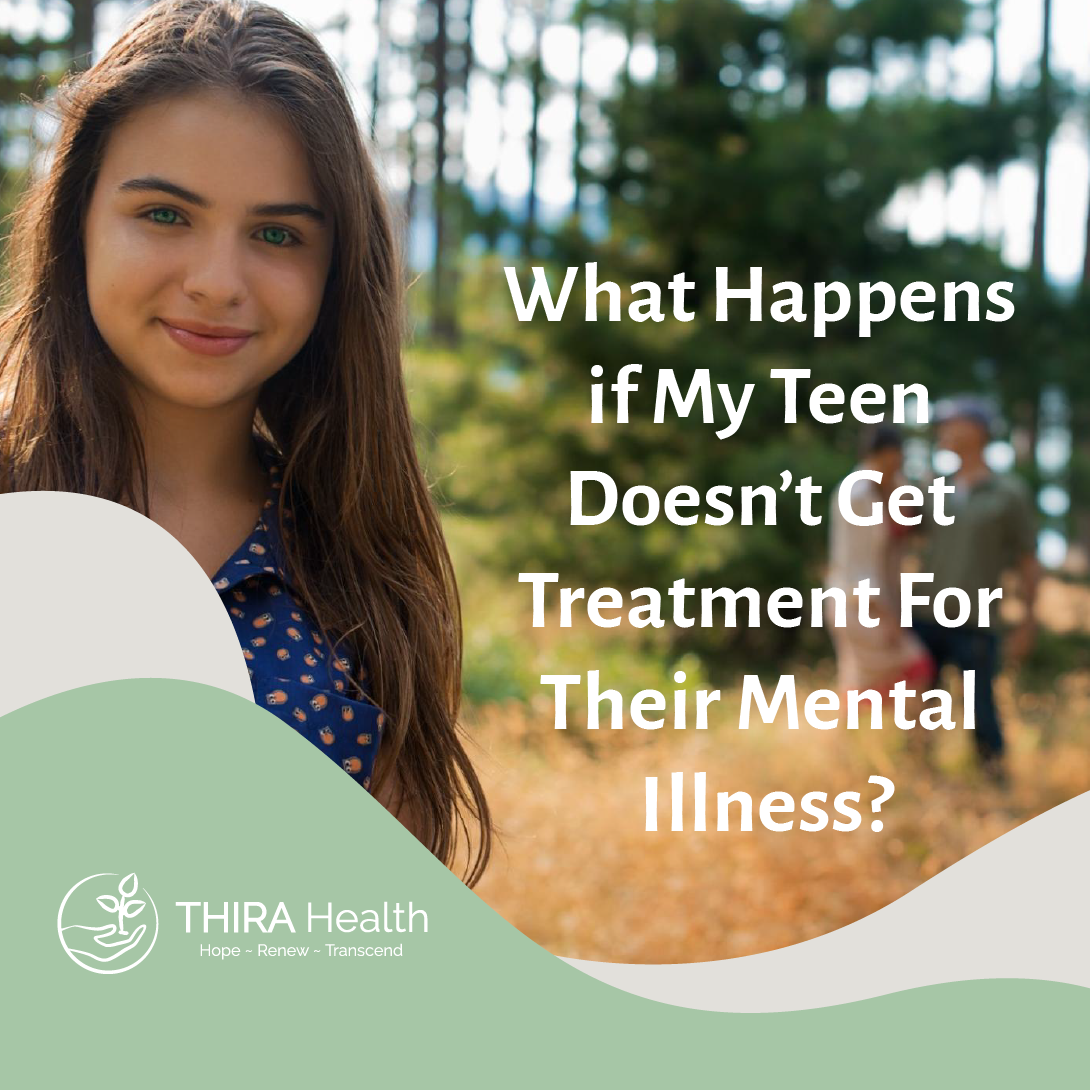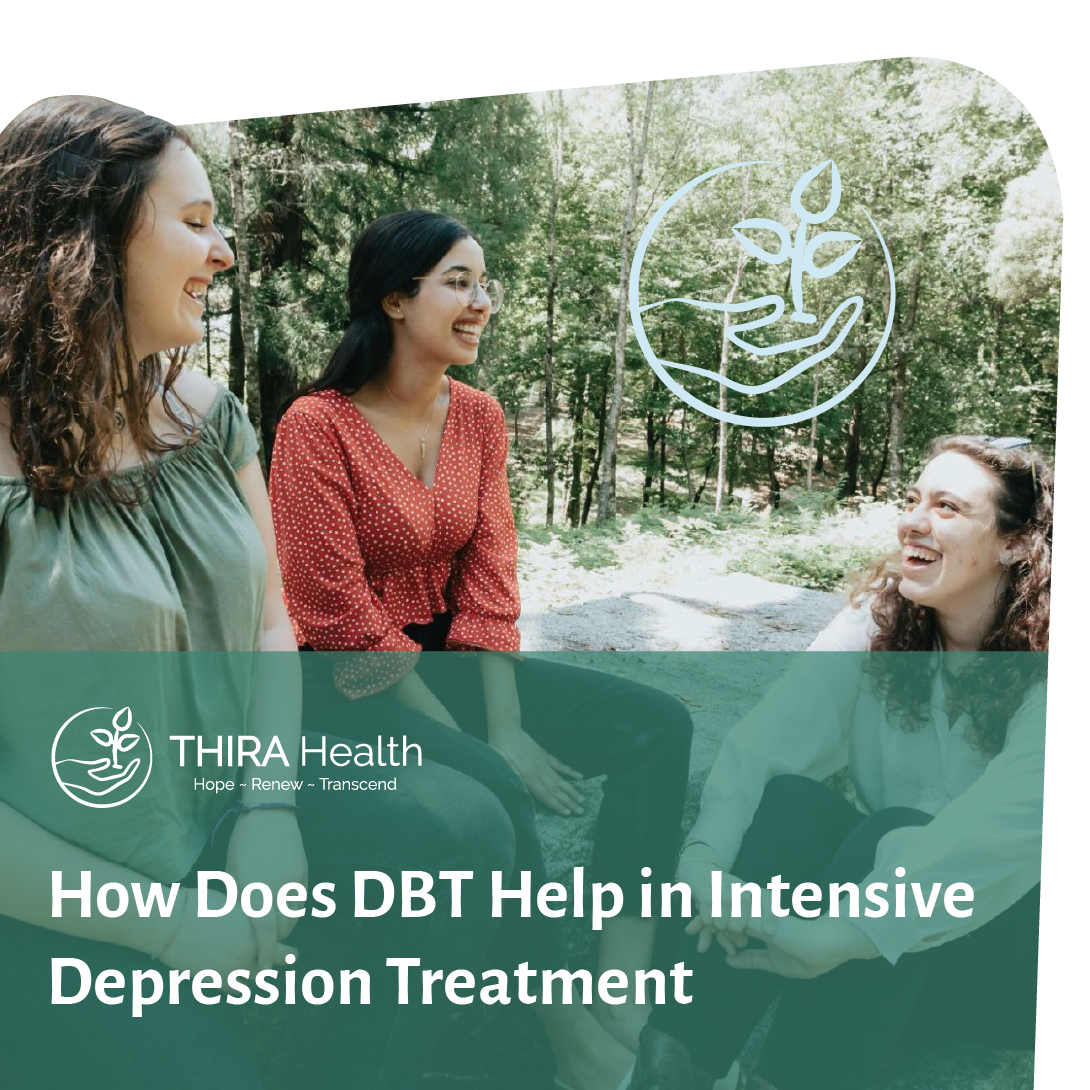Each year many of us end the traditional season of overeating with an equally traditional resolution to get into shape to lose those extra pounds we just acquired at the dinner table. This past year, COVID exacerbated ordinary weight issues by forcing us into a months-long quarantine filled with a sense of helplessness, anxiety, and forced inactivity – a perfect breeding ground for “stress eating.”
Now, not two months into the new year, we approach another month filled with candy, cards, and love expressed by way of “sweet” gifts, which can generate unwanted guilt for our (over)indulgences.
Following Valentine’s Day comes another important week here at THIRA Health: the National Eating Disorders Awareness Week, which extends from February 22 through February 28.
This year, for National Eating Disorders Awareness Week, we will explore the effects of how COVID-19, quarantining, social distancing, and closer proximity to the kitchen have affected wellness, eating behavior, and mindfulness of our bodies’ needs.
Gaining the “COVID 19”
We’ve perhaps all heard of the “Freshman 15,” which is a term used by college students entering the first year of college. Amid the stress of adjusting to life outside of their parent’s home, they often find themselves gaining weight through poor eating practices, a lack of mindful eating, or finding comfort in food.
Today, many have joked and compared the effects of the pandemic by naming weight gain as “the COVID 19,” as today we encounter many of the same challenges that entering college presents. Between economic impacts, increased household responsibilities, proximity to the pantry, a daily schedule lacking structure, routine, or regimen for eating or exercise, and having to cope with stress and uncertainty the best we can, the emotional toll on us and resulting weight gain can seem inevitable.
Food and Mood
Nutritionists have found that food can be directly linked to our mood, as Harvard scholars have found that 90% of our serotonin receptors are found in our gut. This means that our “feel good” chemicals are very often instigated by the foods we feel good eating. It’s no wonder that so much of the evidence of our ability to cope with stress during the pandemic can be found in our pantries. At THIRA Health, we talk often in our therapy groups about how nutrition is tied to our ability to cope with anxiety and depression.
In the year of the pandemic, much of the focus was on survival and emotional stamina. While the stressors of last year remain as we guide ourselves through the pandemic’s enduring effects, we have put together some ways where we can begin to regain our power and trust in our ability to be mindful of our habits, and thereby get back into our bodies.
Trusting Your Intuition
More broadly speaking, trusting your intuition is something we all do as a way to manage and understand the world on an almost unconscious level. It can also be a way to listen to what our bodies need versus allowing our emotional senses to overtake our hunger. This concept is called Intuitive Eating and includes a process of accepting and honoring hunger as a biological process, viewing food as sustenance to complete daily tasks with energy, challenging social norms that dictate body size, cherishing our food, and making peace with our emotions and body.
Here are some quick tips to help you begin to find your intuitive power (keeping in mind that these are steps that can begin to shift your thinking, but are not a substitute for mental health counseling):
- Consider the objectives of diet culture, which are often used to control or mediate women’s feelings of worthiness about their bodies.
- Figure out what foods your body responds best to and make you feel ready for the day.
- Notice when you use words of judgement like “good” and “bad” to describe food.
- Set up an environment to enjoy your meals (maybe it’s a lit candle, sitting at a table, or while listening to soothing music).
- Respect your own processes, reactions, and emotions about food and your body.
Knowing ourselves is our best tool for managing food and other troublesome aspects of our lives.
Radical Acceptance
Radical acceptance was a term coined by Marsha Linehan, developer of Dialectal Behavior Therapy, and a commonplace practice at THIRA Health. Radical Acceptance rests on principles of mindfulness, letting go of the illusion of control and a willingness to notice and enter into the moment on the moment’s terms right now, without judging. We have found through our work that accepting our circumstances unlocks an opportunity for change. This concept is hard for many, as it feels like granting approval to what has happened to us, rather than realizing “what is” in our lives and accepting it so we can move past it. We can practice radical acceptance of our environment in a pandemic by accepting our place in the world, the emotions we feel about the danger, and how we can cope.
DBT practice describes some important ways in which we might be able to offer our body and mind some radical acceptance:
- Realize that accepting what is around us does not make it permanent. Whether it be our weight, our anxiety or depression, or the state of the world, it will inevitably change again.
- If we can’t change the world, we can certainly change our view. Sometimes this may mean limiting our intake of news sources, journaling about our thoughts, exercising, talking to others, or other ways of processing difficult feelings.
- Since change is inevitable, we can practice mindfulness of what “is,” right now. Taking deep belly breaths and feeling our heartbeat can ground us when we feel overwhelmed by shame or food guilt, and ultimately return us to our body’s natural regulatory processes.
To learn more about DBT skills, please visit us at THIRA Health.
